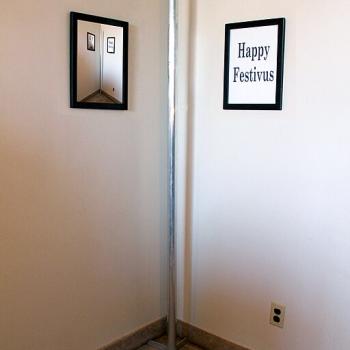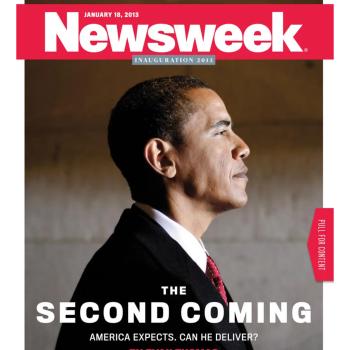Oral arguments begin today at the Supreme Court in Sebelius v. Hobby Lobby, a case precipitated by the HHS Mandate, under which corporations must provide abortifacient and contraceptive coverage to employees. This requirement, the most controversial in a host of controversial provisions under Obamacare, has elicited a host of lawsuits from a variety of religious organizations, both for-profits and non-profits. Hobby Lobby could face fines of up to $500 million a year if the mandate goes forward.
Hobby Lobby, represented by The Becket Fund, argues for an exemption to the HHS Mandate on the basis of the First Amendment’s guarantee of free exercise of religion, and on the broadly bipartisan, Clinton-era Religious Freedom Restoration Act, which requires that “governments should not substantially burden religious exercise without compelling justification” and provides a “defense to persons whose religious exercise is substantially burdened by government.” Congress passed this law almost unanimously, and President Clinton signed it, in 1993.
Others, including Baylor president Ken Starr, have done an excellent job laying out the legal implications of the case. I’ll simply add here that I am struck by the Obama administration’s bold, relentless challenges to established understandings of religious liberty. Sarah Pulliam Bailey in 2012 compiled a stunning timeline of the administration’s first term moves with religious liberty implications, and the list would be much longer now. Throw in state-level cases of businesses being required to offer services to gay weddings, and there’s reason for alarm indeed.
Without questioning its significance, I believe that Hobby Lobby was actually not the most disturbing assault on religious liberty under the Obama administration. That came in the 2012 Hosanna-Tabor Supreme Court case, which I examined at length in Liberty magazine. Traditional religious liberty law has understood that churches and other religious organizations were exempt from discrimination lawsuits by “ministerial” employees, because the government is not competent to determine standards of employment for such organizations. But the Obama Justice Department argued in Hosanna-Tabor that the court should reject the ministerial exception, or apply it only to employees whose duties were “exclusively religious.” (One wonders, are a pastor’s duties 100% religious? What if he writes checks or mows the lawn? But I digress.) This shocking attack on the ministerial exception went far beyond even the amicus briefs filed by the ACLU and other secularist organizations.
The good news – perhaps a heartening precedent for Hobby Lobby – is that the Supreme Court utterly repudiated the Obama administration’s position in its 9-0 Hosanna-Tabor decision. Even President Obama’s own appointees did not buy the administration’s argument.
But the president’s boldness, seen most obviously in these two Supreme Court cases, does give us real reasons to worry. If the administration had its way, then the national government would wield a great deal more power over the hiring practices of faith-based organizations, and a great deal more authority to force religious dissenters to comply with federal policy. Aggressive new claims of government power over religious freedom – or over any basic freedom – are dangerous. Legislators already beat back such claims in the RFRA, as did the Supreme Court in Hosanna-Tabor. I pray that the court will do the same in Hobby Lobby’s case.













